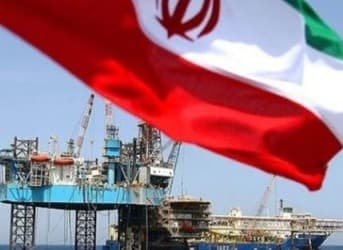Washington this week added another seven countries to the list of those exempt from sanctions that target the Iranian energy sector. The U.S. government and its allies believe Tehran is using revenue generated from the sale of its massive natural resource base to help finance a nuclear program that could be considered cover for a weapons effort. While some of those countries might be considered mid-market buyers, collectively, it appears sanctions are finally starting to have an impact. Oil markets are well supplied, prices are low and Iran is starting to talk.
There are now 18 countries exempt from U.S. sanctions targeting the Iranian energy sector, ranging from Turkey and India to Malaysia and the United Kingdom. The European community in early 2012 announced existing crude oil contracts with Iran would be phased out by July 1. Similar U.S. measures go into force later this month. Iran had already hit back at its European counterparts by banning exports. Apart from jitters early this year, however, the situation isn't turning out like last year's war with Libya. At least not yet.
Civil war in 2011 shut down most of the oil production in Libya, leaving one of the world's top oil producers out of commission. That prompted the International Energy Agency to call for the release of strategic petroleum reserves to offset liquidity concerns. With global markets last year cautiously peeking out from behind the curtain of recession, the IEA worried high energy prices would erase any hopes of an economic recovery. Given the slow, methodical pace at which sanctions are tightening on Iranian crude, however, it appears markets in 2012 have had ample time to adjust.
Decisions from countries like Malaysia to cut back on Iranian crude might not make a major splash in terms of the global oil balance. Others, like EU members and Japan, however, have left Iran somewhat isolated from international markets. To get sanctions exemptions, though, countries need only to "significantly" reduce Iranian crude oil purchases and there's no set definition for what constitutes "significant." Nevertheless, the IEA said Iran last year exported about 2.5 million bpd but was delivering roughly 1.5 million bpd this year. Despite that, oil markets in mid-2012 are said to be "well supplied."
Iran may or may not be actually pursuing a nuclear weapon. The smart move from Tehran would be to get to the point that it could if it wanted to, but stop just short of actual production. That being said, Iran has met twice with the IAEA and held two rounds of negotiations with members of the P5+1. Another round of talks is scheduled at a later date in Moscow, suggesting Iran is either getting what it wants or is truly feeling the pinch from international sanctions.
By July 2, U.S. and European sanctions will have kicked in, just in time for the surging demand during the summer as U.S. consumers head out for vacation. Another scenario for Iran is that it's stalling to see what happens to oil markets after July. Tehran is notorious for its diplomatic manoeuvring and with the global economy wobbling tentatively on the edge, what happens this summer when sanctions kick in could be a make-or-break situation, geopolitically and economically speaking.
By. Daniel Graeber of Oilprice.com



















How long can they hold the blockade?